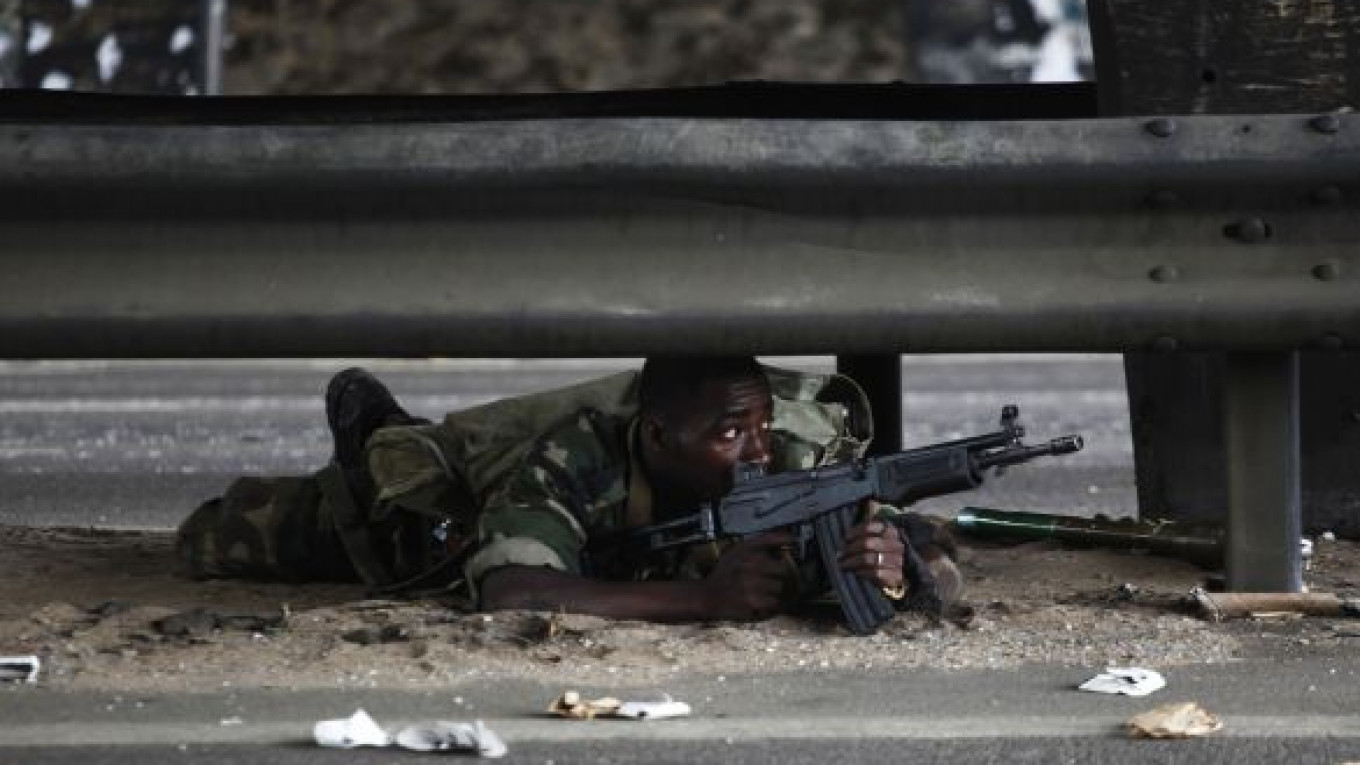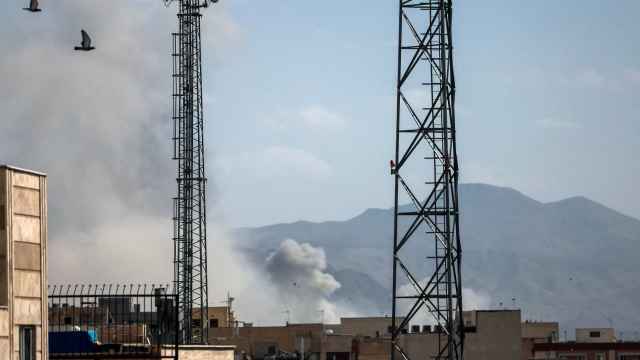Foreign Minister Sergei Lavrov questioned the use of force by UN peacekeepers in Ivory Coast on Tuesday after peacekeepers backed by the French military targeted Laurent Gbagbo's heavy weapons with attack helicopters.
"We are studying the legal side of the situation because the peacekeepers had a mandate which obliges them to be neutral and impartial," Lavrov said at a news conference with Gabonese Foreign Minister Paul Toungui.
Lavrov said Russia had requested an urgent briefing at the UN Security Council on the issue.
"So far we have not heard very clear answers to our questions," he said.
Gbagbo has defied international pressure to give up the presidency of the cocoa-growing country after a November election that UN-certified results showed his opponent Alassane Ouattara won. More than 1,500 people have died in the standoff since.
Earlier Tuesday, the Foreign Ministry called for an end to fighting and the start of talks.
France, which has repeatedly called on Gbagbo to step down, said Tuesday that it was not at war in Ivory Coast, its former colony. A French government spokesman said, "We are applying the democratic will of the people."
The French Foreign Ministry said French forces intervened only in support of a UN resolution.
Russia, sensitive about foreign involvement in election disputes because of criticism of its own democracy record, earlier used the threat of a UN Security Council veto to quash a plan for potential military intervention in Ivory Coast by the West African regional group ECOWAS, diplomats said.
But Russia voted with the other 14 Security Council members on March 30 for a resolution that imposed sanctions on Gbagbo's government and echoed earlier UN calls for him to step down.
In broader remarks, Lavrov said all African nations, including Ivory Coast and Libya, should resolve their problems without foreign intervention, while the international community needs to stimulate political dialogue.
Russia let the UN Security Council resolution authorizing intervention in Libya pass by abstaining in the vote. Lavrov reiterated concern about the extent of the NATO-led coalition's military role and said Russia would seek clear limits on the mandate of outside forces in any future resolution.
A Message from The Moscow Times:
Dear readers,
We are facing unprecedented challenges. Russia's Prosecutor General's Office has designated The Moscow Times as an "undesirable" organization, criminalizing our work and putting our staff at risk of prosecution. This follows our earlier unjust labeling as a "foreign agent."
These actions are direct attempts to silence independent journalism in Russia. The authorities claim our work "discredits the decisions of the Russian leadership." We see things differently: we strive to provide accurate, unbiased reporting on Russia.
We, the journalists of The Moscow Times, refuse to be silenced. But to continue our work, we need your help.
Your support, no matter how small, makes a world of difference. If you can, please support us monthly starting from just $2. It's quick to set up, and every contribution makes a significant impact.
By supporting The Moscow Times, you're defending open, independent journalism in the face of repression. Thank you for standing with us.
Remind me later.






